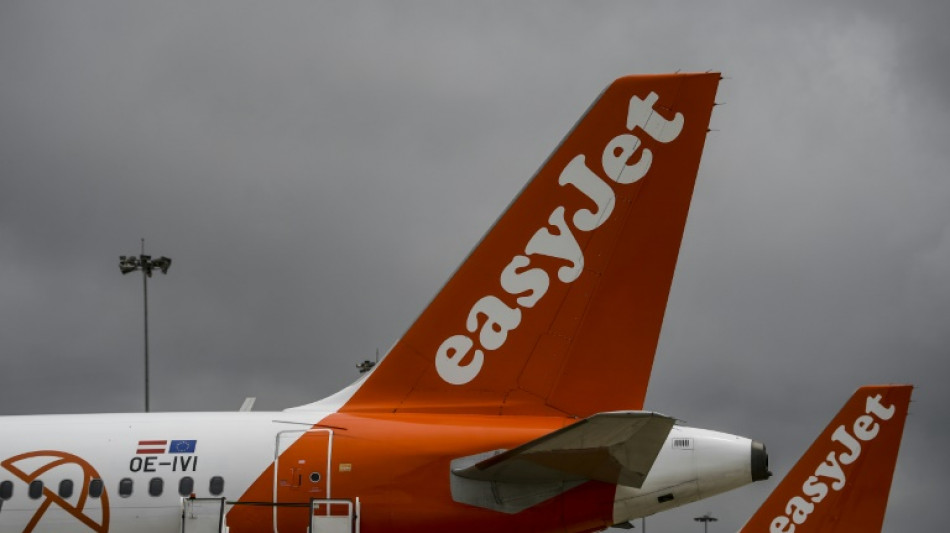

EasyJet halves first-quarter loss despite Omicron
British airline EasyJet slashed losses by half in the first quarter, despite the emergence of the Omicron coronavirus variant which disrupted the travel industry, the company said Thursday.
Pre-tax losses stood at £213 million ($288 million, 255 million euros) in the three months to the end of December, after a £423 million loss in the same period of the group's previous financial year, the no-frills carrier said in a statement.
Revenues jumped almost fivefold to £805 million in the reporting period, while cost-cutting helped offset the impact of inflation.
"EasyJet produced a significant year-on-year improvement in the first quarter, despite the short-term impact of Omicron in December, halving losses," said Chief Executive Johan Lundgren.
"During the pandemic, EasyJet has transformed many areas of the business including optimising its network and flexibility and finding sustainable cost savings. This is helping partially offset inflationary pressure."
The spread of the Omicron variant in December did hit travel bookings, but they were subsequently boosted by the UK government's recent decision to scrap Covid travel testing.
"Booking volumes jumped in the UK following the welcome reduction of travel restrictions announced on 5 January, which have been sustained and then given a further boost from the UK government's decision earlier this week to remove all testing requirements," said Lundgren.
"We believe testing for travel across our network should soon become a thing of the past."
- 'Strong summer ahead' -
The airline, which is based in Luton north of London, now expects to return to near pre-pandemic capacity levels in the upcoming summer holiday season between July and August.
"We see a strong summer ahead, with pent-up demand that will see EasyJet returning to near-2019 levels of capacity with UK beach and leisure routes performing particularly well," the CEO added.
The UK government had in December reimposed stricter travel rules -- including mandatory pre-arrival tests and self-isolation until travellers had tested negative -- after a surge in cases due to Omicron.
However, the travel measures were eased earlier this month, as Prime Minister Boris Johnson argued they were having a "limited impact" while imposing "significant costs" on the industry.
On Monday, the government announced that it will scrap compulsory Covid tests from February 11 for fully jabbed arrivals and quarantine for unvaccinated travellers.
Currently, fully vaccinated arrivals are required to take a lateral flow test within two days, while those not jabbed must self-isolate for 10 days and take several tests before and after travel.
Transport Secretary Grant Shapps declared Monday that those requirements would now be axed, making travel easier and cheaper -- and providing "certainty" for the troubled aviation sector.
L.A. Beltran--LGdM




